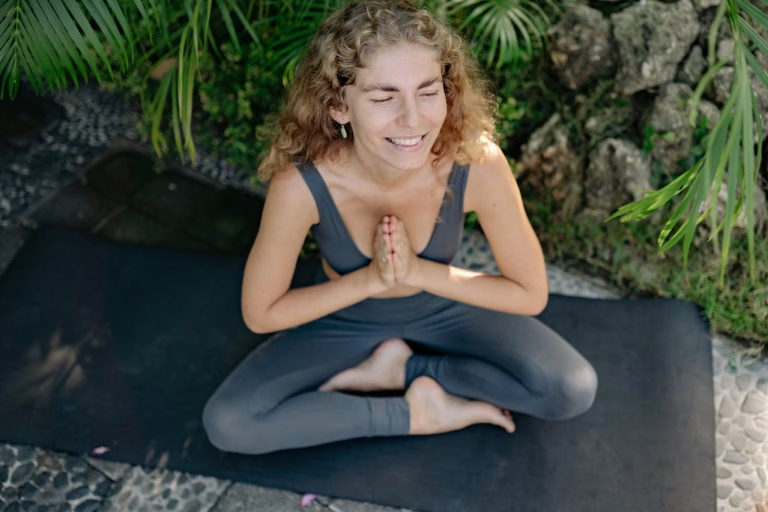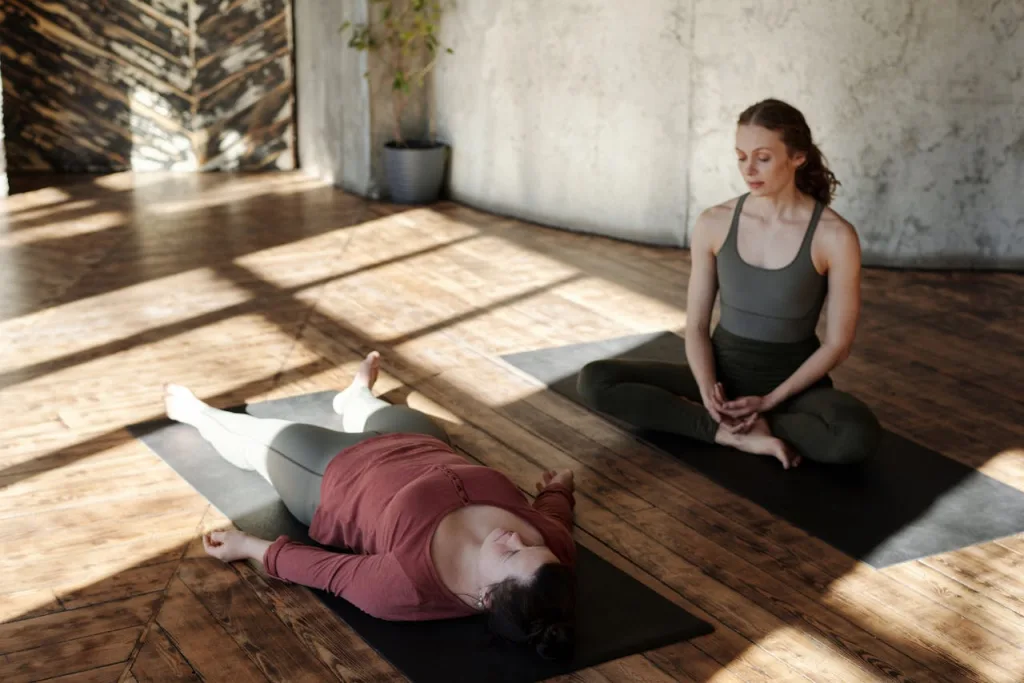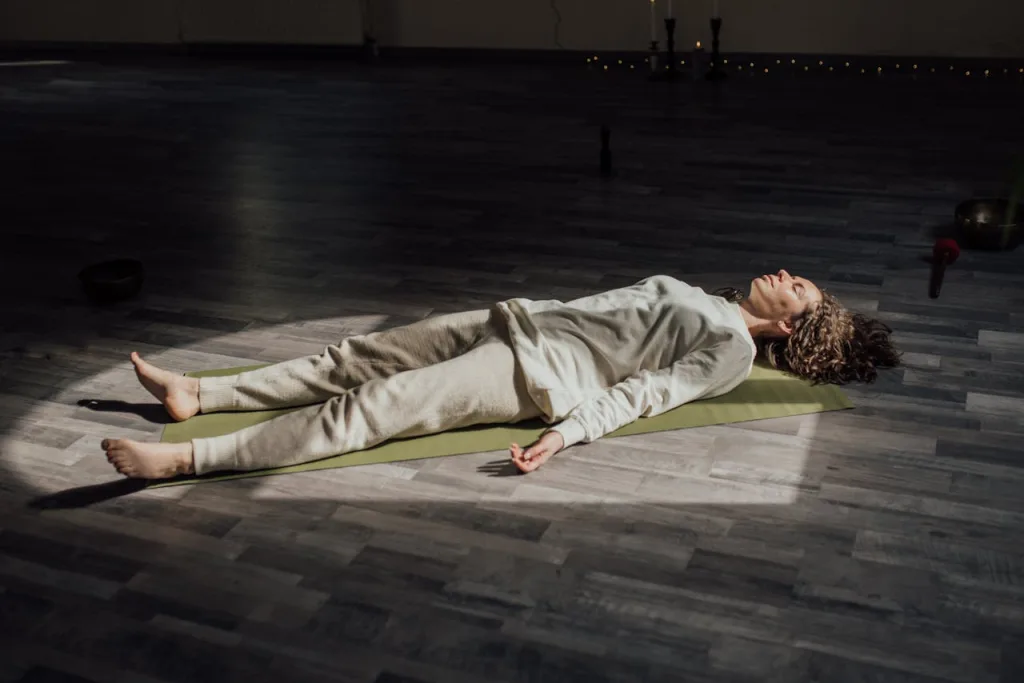Studying happiness by following wellness accounts on social media and listening to science-based podcasts, I keep hearing about gratitude practice and how it can be an easy way to increase our daily happiness.
Although gratitude practice comes from the spiritual world, more and more studies and happiness experts emphasize its benefits.
I have been practicing gratitude continuously and want to dig deeper and understand its benefits.
I will explain in simple words what gratitude practice is, dive deep into studies and proven benefits, and how to practice gratitude and make it a habit. I will also link to studies, some expert podcasts, and YouTube videos so you can research it even more.
What Is Gratitude Practice?
Gratitude is recognizing and appreciating life’s positive aspects, big or small. Gratitude is focusing and appreciating what we have instead of what we lack, fostering a feeling of fulfillment and happiness. Gratitude is more than just saying “thank you;” it is a mindset of appreciation that helps us see challenges as opportunities for growth. Gratitude also helps us improve our relationships with others.
Gratitude is highlighted in religions where gratitude is given to God. Gratitude to God or Gods is prominent in Catholic, Buddhist, Muslim, Hindu, and Jewish religions. Although gratitude is practiced in many religions and is highlighted by many spiritual leaders, it is important to practice if you are not religious.
Instead of being grateful to a God, you can be just appreciative and focus on your purpose or purposes in your life.
Ultimately, gratitude is about developing an attitude of thankfulness and appreciating the value of our experiences and surroundings.
Proven Benefits of Gratitude Practice
Mental and Emotional Health Improvements
Studies show that gratitude impacts mental and emotional well-being. For example, research by Emmons and McCullough found that participants who kept gratitude journals for 10 weeks reported 25% higher happiness levels than those who focused on daily burdens. (4)
Similarly, a study published in the Journal of Positive Psychology revealed that practicing gratitude can reduce symptoms of depression and anxiety by promoting a positive outlook on life.(6)
Physical Health
In a study published in Applied Psychology: Health and Well-Being, participants who wrote in a gratitude journal before bed experienced better quality sleep and fell asleep faster.(7)(2)
Another study in Frontiers in Psychology showed that gratitude practices lower stress(5) and improve overall well-being.(8)(2)
Social Well-Being
Showing gratitude strengthens close relationships by increasing trust and emotional closeness. A 2010 study published in Emotion found that individuals who expressed gratitude to their partners not only felt more satisfied in the relationship but also helped their partners feel more valued and committed.(9) Furthermore, gratitude encourages acts of kindness and cooperation. (2)
Optimism and Sense of Purpose
Gratitude helps to stay more optimistic (3). Research in Psychological Science shows that people who practice gratitude experience higher life satisfaction, happiness, and purpose, even during difficult times.(10)
It is excellent that gratitude practice is studied more and more. However, it is essential to remember that all these studies are based on slightly different gratitude practices, and research is difficult to standardize. Still, proven effects are encouraging, and practicing gratitude is quick and free, so we all should try to incorporate it into our daily routines.

Simple Ways To Practice Gratitude
Practicing gratitude doesn’t have to be time-consuming or expensive. All you need is 5 minutes in your day. You can be grateful in your thoughts; you can say it out loud or write in your journal on your phone, or paper. You can also create a friend group or chat where you all express a few things for which you are grateful daily. Or you can join an existing gratitude community online, like this one on Reddit.
The best way to practice gratitude is in the morning; you can do it in bed as soon as you wake up. Or reflect on the day and practice gratitude in the evening before bed. I do it in the morning, but some people prefer to practice gratitude in the evening after the day is finished.
Ideally, you want to express gratitude for 3 to 5 new things daily. Gratitude can be expressed in multiple areas of our lives; here are a few to get you started:
- Personal– focusing on our values, behaviors, abilities, and accomplishments.
- Interpersonal– directed towards others, appreciating people in your life, their support, and kindness.
- Environmental- appreciating nature and the world around us
- Situational- appreciating beautiful events and moments in our lives and being grateful even during hard times, as they often show us valuable lessons and opportunities for growth.
- Material – appreciating things we have
- Spiritual can be related to religion and being grateful for a connection to someone bigger or a sense of purpose in life.
- Global or Societal – being grateful for new inventions or people that make our life on the planet beautiful.
Gratitude isn’t just about listing things, it’s about truly appreciating them. To deepen your practice, reflect on why you’re grateful for something and how it makes you feel. For example, instead of just noting, ‘I’m grateful for my partner,’ think about how their support makes you feel loved, safe, or inspired to grow.
You can also be grateful not only for ‘positive’ things in life, but also for challenges and hardships. Why? Because they make you grow and develop.
Other examples:
I am grateful for a rainy day because it makes me appreciate the sunshine more; the rain also waters the plants and washes off the dust of the streets.
I appreciate the beautiful meal we had as a family; it nourished our bodies, tasted delicious, and made us bond.
To make gratitude practice helpful, practice it daily, so find a way that suits you. My partner and I like to share what we are grateful for, which makes the gratitude practice even more powerful.
If you are unsure where to start, join 31 Days of Gratitude on our Instagram.
You can start at any time and think of one to 5 things you are grateful for each day.
The Most Beneficial and Science-based Gratitude Practice
Studies have shown that the most beneficial practice of gratitude is not being grateful but receiving gratitude from others. How can you implement it in your life? Well, express gratitude to others so they feel the benefits. Do good things for others so you receive the gratitude back.
Do little acts of kindness, like buying a sandwich or a coffee for a homeless person, or helping an old lady carrying bags, to receive gratitude.
A scientifically proven way to practice gratitude is to imagine a story of kindness and think about how the receiver of appreciation would have felt in the situation. It can be you or another person being thanked for a specific act of kindness.
Repeat this practice for five to five minutes daily to revive your brain for a more positive outlook. Ensure that the story you keep repeating for yourself is meaningful and makes you feel grateful; you can’t lie about it and reap the benefits; you have to feel it.
Andrew Huberman explains this practice very clearly in his video :
Gratitude has been known for thousands of years to enhance our lives, give a more positive outlook, and make us more connected and happy. It is a very short practice that can rewire our brain for life, from one to five minutes a day. It doesn’t matter what you do, but try practicing gratitude daily to build a long-term habit and reap the rewards. Try practicing different ways of being grateful, from appreciating what you have to imagine a scenario or replaying a memory of gratefulness, and see what works best for you.
If you want to learn more about practices that enhance your well-being, check out:
Do you practice gratitude? How do you do it? Leave a comment below; I would love to hear it.
Please Note: This post is for informational purposes only and is based on research. It’s not medical advice. It’s always best to consult a healthcare professional with health concerns. Enjoy reading!
References and links
- Boggiss, A., Consedine, N., Brenton-Peters, J., Hofman, P., & Serlachius, A. (2020). A systematic review of gratitude interventions: Effects on physical health and health behaviors.. Journal of psychosomatic research, 135, 110165 . https://doi.org/10.1016/j.jpsychores.2020.110165.
- Czyżowska, N., & Gurba, E. (2022). Enhancing Meaning in Life and Psychological Well-Being Among a European Cohort of Young Adults via a Gratitude Intervention. Frontiers in Psychology, 12. https://doi.org/10.3389/fpsyg.2021.751081.
- Bohlmeijer, E., Kraiss, J., Watkins, P., & Schotanus-Dijkstra, M. (2020). Promoting Gratitude as a Resource for Sustainable Mental Health: Results of a 3-Armed Randomized Controlled Trial up to 6 Months Follow-up. Journal of Happiness Studies, 1-22. https://doi.org/10.1007/s10902-020-00261-5.
- Emmons, R., & McCullough, M. (2003). Counting blessings versus burdens: an experimental investigation of gratitude and subjective well-being in daily life.. Journal of personality and social psychology, 84 2, 377-89 . https://doi.org/10.1037/0022-3514.84.2.377.
- Fekete EM, Deichert NT. A Brief Gratitude Writing Intervention Decreased Stress and Negative Affect During the COVID-19 Pandemic. J Happiness Stud. 2022;23(6):2427-2448. doi: 10.1007/s10902-022-00505-6. Epub 2022 Feb 24. PMID: 35228834; PMCID: PMC8867461. https://pmc.ncbi.nlm.nih.gov/articles/PMC8867461/
- Alex M. Wood, Jeffrey J. Froh, Adam W.A. Geraghty, Gratitude and well-being: A review and theoretical integration, Clinical Psychology Review, Volume 30, Issue 7,2010 , Pages 890-905 , ISSN 0272-7358, https://doi.org/10.1016/j.cpr.2010.03.005.
- Jackowska M, Brown J, Ronaldson A, Steptoe A. The impact of a brief gratitude intervention on subjective well-being, biology and sleep. J Health Psychol. 2016 Oct;21(10):2207-17. doi: 10.1177/1359105315572455. Epub 2015 Mar 2. PMID: 25736389.https://pubmed.ncbi.nlm.nih.gov/25736389/
- O’Leary K, Dockray S. The effects of two novel gratitude and mindfulness interventions on well-being. Journal of Alternative and Complementary Medicine (New York, N.Y.). 2015 Apr;21(4):243-245. DOI: 10.1089/acm.2014.0119. PMID: 25826108.https://europepmc.org/article/med/25826108
- Lambert, N. M., et al. (2010):Expressing gratitude to a partner leads to relationship well-being.https://clarkrelationshiplab.yale.edu/sites/default/files/files/Benefits%20of%20expressing%20gratitude_%20Expressing%20gratitude%20to%20a%20partner%20changes%20one’s%20view%20of%20the%20relationship.pdf
- Kerr, Shelly & O’Donovan, Analise & Pepping, Christopher. (2014). Can Gratitude and Kindness Interventions Enhance Well-being in a Clinical Sample?. Journal of Happiness Studies. 10.1007/s/10902-013-9492-1. https://www.researchgate.net/publication/262725937_Can_Gratitude_and_Kindness_Interventions_Enhance_Well-being_in_a_Clinical_Sample
Silvija Meilunaite, PN1-NC, CSMC, is a certified nutrition and menopause coaching specialist who writes about midlife health, nutrition, and evidence-based wellness. She focuses on research-driven approaches to feeling better in your 40s and beyond, with a special interest in low-tox living and supportive daily habits.






I love practising gratitude in the morning. It is amazing to see that more people understand the benefits of practising gratitude. Thank you for an insightful article.
This article is amazing! I used to practice gratitude but forgot about it for a while. Thank you for reminding me about it.